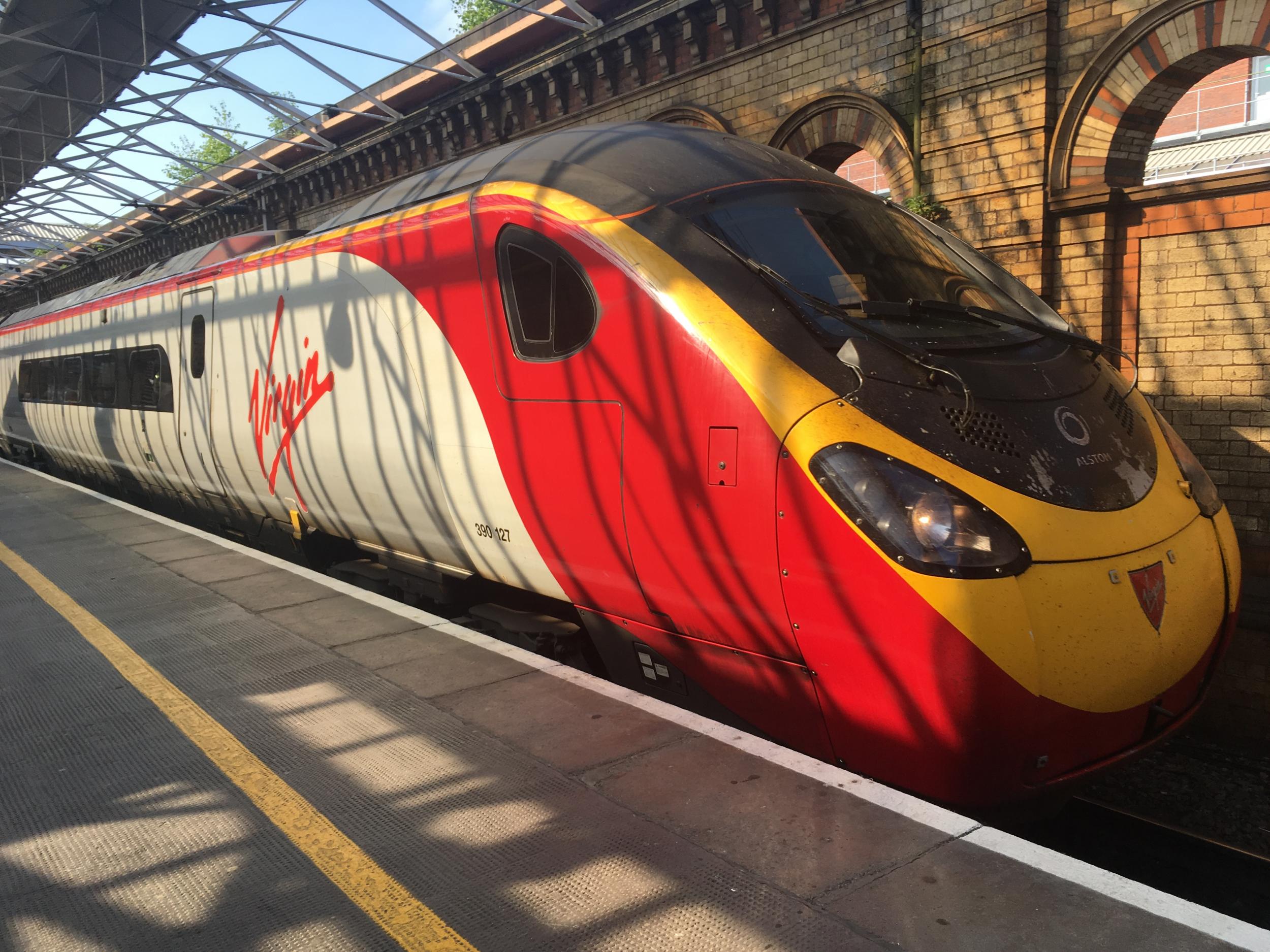Should all trains be reserved seating only?
‘All too often improvements have been delivered late, trains are overcrowded and ticket types incomprehensible,’ says Virgin Trains

Your support helps us to tell the story
From reproductive rights to climate change to Big Tech, The Independent is on the ground when the story is developing. Whether it's investigating the financials of Elon Musk's pro-Trump PAC or producing our latest documentary, 'The A Word', which shines a light on the American women fighting for reproductive rights, we know how important it is to parse out the facts from the messaging.
At such a critical moment in US history, we need reporters on the ground. Your donation allows us to keep sending journalists to speak to both sides of the story.
The Independent is trusted by Americans across the entire political spectrum. And unlike many other quality news outlets, we choose not to lock Americans out of our reporting and analysis with paywalls. We believe quality journalism should be available to everyone, paid for by those who can afford it.
Your support makes all the difference.Harrow and Wealdstone station in northwest London had its moment in the sun last weekend. On Good Friday and Easter Monday this quiet suburban station at the far end of the Bakerloo Line stood in for London Euston, the UK’s fifth-busiest terminus, as the capital’s end of the West Coast Main Line.
Passengers transferred from the Tube to the rail platforms from where a series of Virgin Trains departed to more exotic destinations than the usual options of Watford Junction and Milton Keynes: Birmingham, Manchester, Liverpool...
From what I saw, these trains were far from “full and standing”, to use the rail industry term for services with more passengers than seats. That was because many passengers had heeded the advice to travel on the East Coast Main Line instead.
The 11am from London King’s Cross to Edinburgh on Good Friday was one of many long-distance trains that was overstuffed as a result. “Children sitting in the aisles, one person collapsed and no water in the toilet,” wrote one of many complainants on Twitter.
The social media team at LNER were apologetic but exasperated: “To save repetition – we do not overbook services. We cannot stop customers with flexible tickets from boarding.”
By Wednesday, LNER’s counterpart on the West Coast, Virgin Trains, had set out a cunning plan for eradicating overcrowding: making reservations mandatory on every long-distance departure.
The train operator made a persuasive comparison with the aviation industry, saying: “Imagine if airlines operated in the same way as train companies.
“They would be forced to accept whoever turned up at the gate, regardless of whether they had to stand in the plane’s aisle.
“Customers with certain tickets could turn up for any flight they liked, without telling the airline. It would be pandemonium. And yet this is how we expect our long-distance railway to operate every day.”
There are, though, crucial differences. The reason every passenger on every flight has a seat is to keep them (and everyone else on the aircraft) safe.
The UK’s railways are achieving unmatched levels of safety. While passengers on the 11am linking the capitals of England and Scotland had plenty to complain about and little chance of reaching the buffet, they were not in physical danger.
They could also, as I have done on the East Coast Main Line, decide to change at York and wait for a quieter service. Everyone gets where they need to be, and so does their baggage. Yes, they may be fuming, but they are home.
Virgin Trains made its call for mandatory reservations in evidence submitted to the Williams Review.
Keith Williams, poor chap, faces the challenge of sorting out the railways. He is the former boss of British Airways, which may be why Virgin Trains makes repeated references to the airline business.
“At the moment, train companies try in vain to carry all their passengers regardless of disruption, with inevitably unacceptable customer experience.
“Airlines would never even consider behaving in this way and neither should long-distance train companies.”
Virgin Trains’ solution during “significant disruption”?
“To open a limited number of ‘standing reservations’. This would allow customers who preferred to stand to still travel, whilst preventing the train becoming overwhelmed.
“Other customers would wait for later trains, and if there were still not enough spaces for all passengers to travel that day, train companies would need to book taxis, coaches or hotels.”
I rather feel that the proposal to “allow customers who preferred to stand to still travel” is exactly what happens at the moment, but without complicated rules and structures.
Yet as Virgin Trains prepares (for now) to exit the railway industry, its franchise renewal bid having been deemed “non-compliant” by the Department for Transport in a row over pension liabilities, the operator sums up the state of the railways with clarity and honesty: “Over the last few years, industrial action and the lamentable implementation of new timetables have left many struggling to make even the most basic daily journeys.
“All too often improvements have been delivered late, trains are overcrowded and ticket types incomprehensible.”
That succinct summary speaks of bigger issues than: “Are you sitting comfortably?”
Join our commenting forum
Join thought-provoking conversations, follow other Independent readers and see their replies
Comments